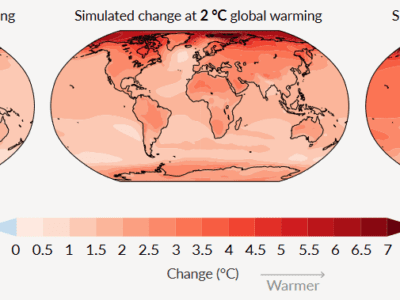How to Turn a Forest Into a Desert
 Anyone familiar with the Supreme Court’s landmark decision in Massachusetts v. EPA will also know Georgia v. Tennessee Copper, the landmark 1907 decision used by the Massachusetts court to hold that states have standing to challenge EPA’s failure to promulgate climate change regulations. Courtesy of the Journal of American History, I have discovered that there is a recent full-length book on the Tennessee Copper decision. The author is Duncan Maysilles, a environmental lawyer at the blue chip Atlanta firm of King & Spaulding.
Anyone familiar with the Supreme Court’s landmark decision in Massachusetts v. EPA will also know Georgia v. Tennessee Copper, the landmark 1907 decision used by the Massachusetts court to hold that states have standing to challenge EPA’s failure to promulgate climate change regulations. Courtesy of the Journal of American History, I have discovered that there is a recent full-length book on the Tennessee Copper decision. The author is Duncan Maysilles, a environmental lawyer at the blue chip Atlanta firm of King & Spaulding.
The blurb from the University of North Carolina Press (which maintains excellent lists in both law and history), is revealing:
It is hard to make a desert in a place that receives sixty inches of rain each year. But after decades of copper mining, all that remained of the old hardwood forests in the Ducktown Mining District of the Southern Appalachian Mountains was a fifty-square mile barren expanse of heavily gullied red hills–a landscape created by sulfur dioxide smoke from copper smelting and destructive logging practices. In Ducktown Smoke, Duncan Maysilles examines this environmental disaster, one of the worst the South has experienced, and its impact on environmental law and Appalachian conservation.
JAH’s reviewer, LSU’s Robert Outland, adds an additional gloss on a positive review, noting that the “refining method’s large appetite for firewood and the emission of sulfur dioxide from the heated iron ore created a lasting virtual desert in a region that received ample rainfall and had been known for its lush gree foliage.” But Outland also notes that Maysilles “appreciates the complex relationship between the copper companies and the people of southern Appalachia. While thousands of farm families may have suffered direct economic loss from the poisonous smoke, thousands of employees, many from the affected families, would have lost their jobs and steady income had judgments against the companies been harsh enough to force them to close.” Eventually, Congress made the call, giving EPA the authority to promulgate air quality standards and cleanup requirements, eventually making copper smelting unprofitable.
If one believes the distinguished science journalist Fred Pearce, the saga presents something of a happy ending:
In the end, it is a story of environmental redemption, too. Copper mining finally ended in 1987 and sulphuric acid production in 2000. While the Ducktown desert still drains acid and metals into the rivers, ecological restoration has been under way for a decade and pines now cover much of the once ravaged land. And in this post-industrial landscape, tourism is the big new industry, with hikers and other nature enthusiasts flocking to the protected Chattahoochee National Forest that surrounds Ducktown.
Ducktown Smoke might not break any new ground concerning formal legal doctrine. But it does promise to shed new light on the practical, on-the-ground costs of both extractive industries and environmental regulation. In this sense, it can serve as a useful reminder about why many of us are in this business to begin with.







Reader Comments